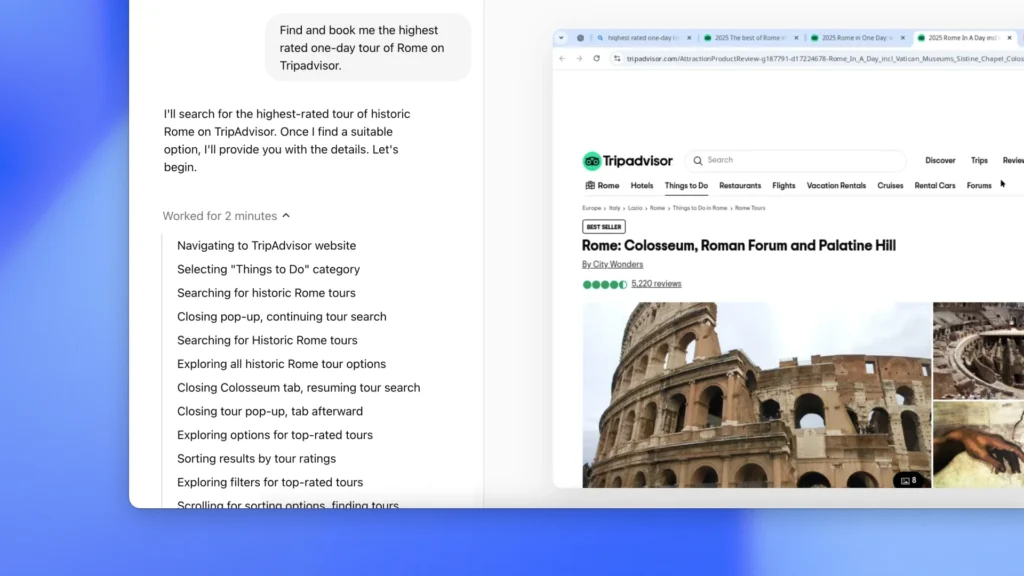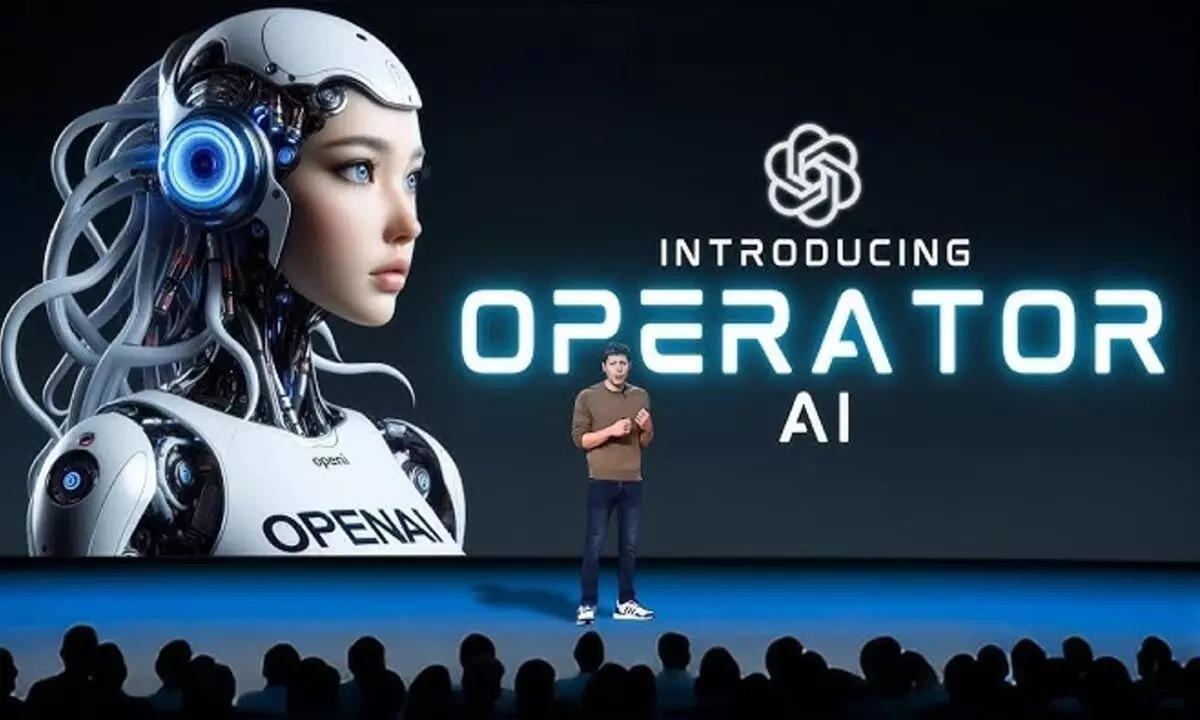OpenAI has launched Operator, an AI agent capable of autonomously navigating the web to perform tasks, marking a significant leap in AI’s functionality. Available initially as a research preview, Operator is being introduced to U.S. users on ChatGPT’s $200 Pro subscription plan, with plans to expand to other tiers such as Plus, Team, and Enterprise.
“Operator will be in other countries soon,” OpenAI CEO Sam Altman remarked during a livestream. “Europe will, unfortunately, take a while.”
Operator can handle various tasks, from booking travel accommodations to shopping online. Users interact with the tool via operator.chatgpt.com, but OpenAI plans to integrate it into all ChatGPT clients.
How Operator Works
Operator leverages OpenAI’s Computer-Using Agent (CUA) model, which combines advanced reasoning abilities with vision capabilities from GPT-4o. The CUA interacts with websites’ front-end interfaces, mimicking human navigation by clicking buttons, filling forms, and scrolling menus.
“The CUA model is trained to ask for user confirmation before finalizing tasks with external side effects, for example before submitting an order, sending an email, etc., so that the user can double-check the model’s work before it becomes permanent,” OpenAI explained.
Collaborations with companies such as DoorDash, eBay, Instacart, and Uber ensure compliance with terms of service agreements.
For transparency, Operator uses a dedicated browser, allowing users to supervise actions. Sensitive tasks, such as entering credit card information, require manual input.
“On particularly sensitive websites, such as email, Operator requires active user supervision, ensuring users can directly catch and address any potential mistakes the model might make,” OpenAI noted.

How to Use Operator
Using Operator is simple. Just describe the task you need completed, and it will take care of the rest. At any time, users can step in and take manual control of the remote browser. Operator is also designed to recognize when user intervention is needed, such as for logging in, entering payment details, or solving CAPTCHAs.
To enhance the experience, users can customize their workflows by setting personalized instructions, either universally or for specific websites. For example, travelers can preset their airline preferences on Booking.com. Operator also allows users to save frequently used prompts for easy access on the homepage, making repetitive tasks like restocking groceries on Instacart more efficient.
Much like managing multiple browser tabs, Operator enables users to run several tasks at once by opening new conversations. This means you can order a custom enamel mug on Etsy while simultaneously booking a campsite on Hipcamp, all within the same seamless experience.
Limitations and Challenges
While Operator is a significant innovation, it has limitations. According to OpenAI:
- Operator cannot reliably handle complex tasks yet, such as creating detailed presentations or managing intricate calendar systems.
- Tasks requiring high customization or involving CAPTCHA checks may stall progress. In such cases, Operator will prompt users to intervene.
- Security restrictions prevent Operator from sending emails or deleting calendar events, though OpenAI hints at future updates.
Usage is regulated with daily task limits and “dynamic” task-dependent restrictions. OpenAI ensures no user data is collected or screenshotted during operation.
Safety Measures
OpenAI has incorporated robust safeguards to prevent malicious exploits.
“Operator employs tools that seek to limit the model’s susceptibility to malicious prompts, hidden instructions, and phishing attempts,” the company stated. A monitoring system halts operations if suspicious activity is detected.
Despite its limitations, Operator represents OpenAI’s boldest move toward autonomous AI agents. Last week’s introduction of Tasks, which allowed for basic automation like reminders and scheduled prompts, was a precursor to this advanced technology.
The Future of AI Agents
AI agents like Operator are viewed as the next big evolution in artificial intelligence. Unlike traditional virtual assistants such as Siri or Alexa, Operator showcases the potential to actively execute complex tasks, revolutionizing how users interact with technology.
With Operator’s launch, the question remains: How close are we to the vision of AI seamlessly integrating into our daily lives? OpenAI’s efforts may soon provide the answer.














